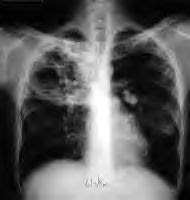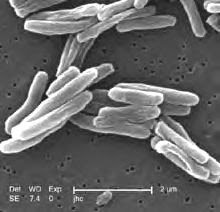The Bill and Melinda Gates Foundation announced a new package of funding, 18 September, to accelerate and build on existing technologies to combat tuberculosis (TB).
The US$280 million grant is the largest single donation for TB research and development by the foundation, which aims to donate US$900 million to research by 2015.
The grants will be used for vaccine development (US$200 million), developing diagnostic tests (US$62 million) and drug discovery (US$18 million).
Tachi Yamada, president of the Gates Foundation Global Health Program, told a press briefing that the diagnostic test for TB —— sputum smear microscopy —— is one hundred years old and fails to diagnose half of all cases in developing countries.
Yamada also said that the only TB vaccine, known as the BCG, is over 80 years old and rarely effective after childhood, while existing TB drugs are becoming less effective as resistance to them grows.
New, effective vaccines could save 30 million lives by 2030, said Jerald Sadoff, president of Aeras Global TB Vaccine Foundation, whose company is receiving the US$200 million over five years to take six newly-identified TB vaccine candidates into clinical trials.
The South African Tuberculosis Vaccine Initiative will work with Aeras to implement the trials. The Initiative's clinical director, Tony Hawkridge, highlighted the critical role of scientists in Africa and other developing countries, saying they had been "at the forefront of the basic science underpinning vaccinology".
The Switzerland-based non-profit organisation Foundation for Innovative New Diagnostics (FIND) will receive US$62 million to develop rapid, point of care TB diagnostic tests for developing countries.
Giorgio Roscigno, chief executive officer of FIND, said that they already had ten new diagnostic technologies in development, and hoped to gain WHO approval for at least three of them in the next five years.
Peter Small, senior program officer for TB at the Gates Foundation, said he hoped that pharmaceutical companies would take notice of the grants for drug development. He said that one of the reasons that TB drugs have not kept up with changing situations —— such as drug resistance —— is that in the last 50 years "no one has really tried".
Http://tinyu;.com/3dfgtz
WHAT'S NEW IN TUBERCULOSIS
Tuesday, 25 September 2007
Subscribe to:
Post Comments (Atom)





No comments:
Post a Comment